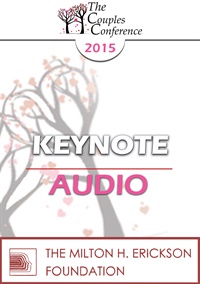
- Average Rating:
- Not yet rated
- Topic Areas:
- Couples Therapy | Keynotes | Multicultural | Therapist Development
- Categories:
- Couples Conference | Couples Conference 2015 | Pioneers in Couples and Family Therapy
- Faculty:
- William Doherty, PhD
- Duration:
- 48:19
- Format:
- Audio Only
- Original Program Date:
- Apr 26, 2015
- Short Description:
- What do you do with couples who are split on trying to working on their relationship or calling it quits? They are often poor candidate for traditional couples therapy but they are idea candidates for "Discernment Counseling," a creative way of working with couples our therapy models are not designed for. We will discuss the difference between couples therapy and discernment counseling.
- Price:
- $15.00 - Base Price
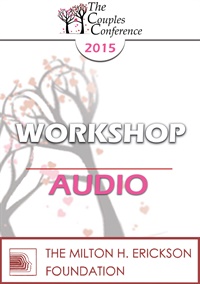
- Average Rating:
- Not yet rated
- Topic Areas:
- Couples Therapy | Workshops | Community
- Categories:
- Couples Conference | Couples Conference 2015 | Pioneers in Couples and Family Therapy
- Faculty:
- William Doherty, PhD
- Duration:
- 1:50:01
- Format:
- Audio Only
- Original Program Date:
- Apr 26, 2015
- Short Description:
- People turn to friends and family long before they go to a couples therapist. Marital First Responders is a new training program for people who are natural confidants on relationship problems: people turn to them for support and perspective. Learn what the training involves, tune your skills in being a confidant in your own social world, and see if you’d like to teach this course in your community.
- Price:
- $15.00 - Base Price
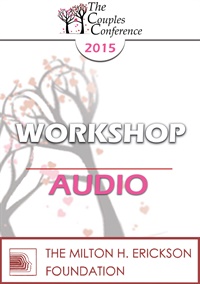
- Average Rating:
- Not yet rated
- Topic Areas:
- Addiction | Workshops | Love
- Categories:
- Couples Conference | Couples Conference 2015
- Faculty:
- Pat Love, EdD
- Duration:
- 1:46:03
- Format:
- Audio Only
- Original Program Date:
- Apr 26, 2015
- Short Description:
- This workshop will explore the fine line between love and addiction. Therapeutic strategies and questions will be explored, and you will learn three predictors of compulsion/ addiction.
- Price:
- $15.00 - Base Price
Tags: Addiction Love Couples Therapy
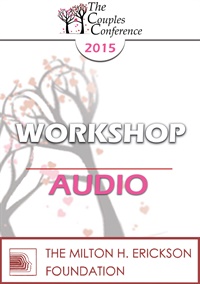
- Average Rating:
- Not yet rated
- Topic Areas:
- Couples Therapy | Workshops | Communication | Interviewing | Therapist Development
- Categories:
- Couples Conference | Couples Conference 2015
- Faculty:
- Peter Pearson, PhD
- Duration:
- 1:53:12
- Format:
- Audio Only
- Original Program Date:
- Apr 26, 2015
- Short Description:
- Conventional approaches begin with: What brings you here? How can I help? What are your objectives? These are great questions for individuals but they are toxic for dysfunctional couples. Their responses will get you a truckload of cross complaints. After ten minutes nobody is feeling great.
- Price:
- $15.00 - Base Price
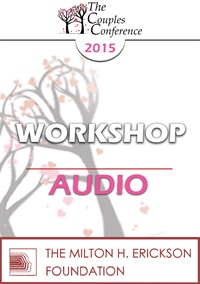
- Average Rating:
- Not yet rated
- Topic Areas:
- Couples Therapy | Workshops | Experiential Therapy | Brief Therapy | Ericksonian Hypnosis and Therapy Techniques
- Categories:
- Couples Conference | Couples Conference 2015
- Faculty:
- Jeffrey Zeig, PhD
- Duration:
- 1:49:31
- Format:
- Audio Only
- Original Program Date:
- Apr 26, 2015
- Short Description:
- Milton Erickson was one of the earliest people to work in Brief Therapy model with couples. This workshop will describe advanced advantages of using experiential methods with couples, including enactment technique and sculpting, lecture, demonstration, and small group practice.
- Price:
- $15.00 - Base Price
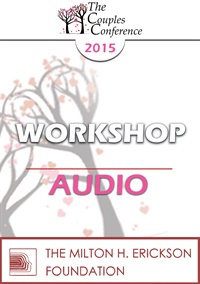
- Average Rating:
- Not yet rated
- Topic Areas:
- Couples Therapy | Workshops | Love | Communication | Conflict | Relationships
- Categories:
- Couples Conference | Couples Conference 2015
- Faculty:
- Bill O'Hanlon, MS
- Duration:
- 1:36:23
- Format:
- Audio Only
- Original Program Date:
- Apr 26, 2015
- Short Description:
- Couples, because they come from different background and have different understandings, often use the same words to mean different things, leading to unnecessary conflict. This workshop will provide a simple, but powerful method to quickly resolve couples conflicts using action talk.
- Price:
- $15.00 - Base Price
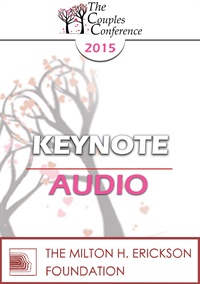
- Average Rating:
- Not yet rated
- Topic Areas:
- Couples Therapy | Attachment | Keynotes | Anxiety | Intimacy | Sex and Sexuality | Love
- Categories:
- Couples Conference | Couples Conference 2015
- Faculty:
- Esther Perel, MA, LMFT
- Duration:
- 57:21
- Format:
- Audio Only
- Original Program Date:
- Apr 25, 2015
- Short Description:
- This bold take on intimacy and sex grapples with the obstacles and anxieties that arise when our need for secure love conflicts with our pursuit of passion. We will tackle eroticism as a quality of vitality in relationships extending far beyond mere sexuality and show how reconciling these two competing needs is at the heart of sustaining desire over time. We will address paradoxes of desire and how social forces inhibit erotic expression; attachment history and the erotic blueprint.
- Price:
- $15.00 - Base Price
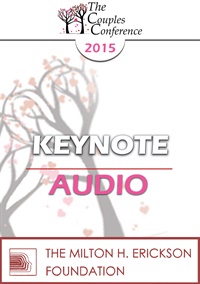
- Average Rating:
- Not yet rated
- Topic Areas:
- Couples Therapy | Keynotes | Trauma
- Categories:
- Couples Conference | Couples Conference 2015
- Faculty:
- Bill O'Hanlon, MS
- Duration:
- 55:33
- Format:
- Audio Only
- Original Program Date:
- Apr 25, 2015
- Short Description:
- Rituals have been used for thousands of years to help people move through difficult developmental times, to move on from problems and stuck places and to grieve and leave trauma behind. In this session, you will discover the two types of rituals that can help couples resolve their issues effectively.
- Price:
- $15.00 - Base Price
Tags: Couples Therapy Trauma
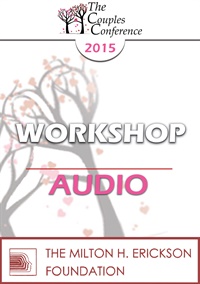
- Average Rating:
- Not yet rated
- Topic Areas:
- Couples Therapy | Infidelity | Sex and Sexuality | Workshops | Love | Intimacy
- Categories:
- Couples Conference | Couples Conference 2015
- Faculty:
- Esther Perel, MA, LMFT
- Duration:
- 1:40:17
- Format:
- Audio Only
- Original Program Date:
- Apr 25, 2015
- Short Description:
- Through case examples, Esther Perel will show how to effectively engage such issues as intimacy, sexuality and infidelity by creating separate spaces where each partner can explore his/her feelings and experiences along with larger relationship dynamics. We will show how to navigate privacy and secrecy, honesty and transparency, stage interventions around sexual impasses, and structure a safe and flexible therapeutic environment to work effectively with infidelity.
- Price:
- $15.00 - Base Price
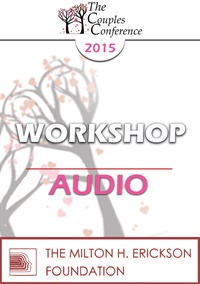
- Average Rating:
- Not yet rated
- Topic Areas:
- Couples Therapy | Workshops | Love | Relationships | Addiction | Sex and Sexuality | Trauma | Attunement | Communication
- Categories:
- Couples Conference | Couples Conference 2015
- Faculty:
- Alexandra Katehakis, MA, MFT
- Duration:
- 1:55:21
- Format:
- Audio Only
- Original Program Date:
- Apr 25, 2015
- Short Description:
- Sex addiction destroys trust in relationships, traumatizing the partner, the sex addict, and the family system. Relational trauma left untreated will have both parties and the entire system crumbling. Attunement, communication, and empathy (ACE) are the three pronged stool that supports the long, and sometimes arduous, journey to restoring trust. The goal is to recognize the signs of relational trauma in both parties, and compare the difference between relational trauma and co-dependence
- Price:
- $15.00 - Base Price
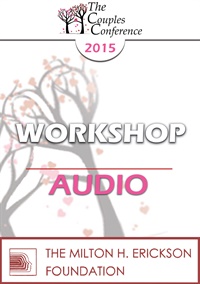
- Average Rating:
- Not yet rated
- Topic Areas:
- Couples Therapy | Workshops | Deception | Differentiation
- Categories:
- Couples Conference | Couples Conference 2015 | Pioneers in Couples and Family Therapy
- Faculty:
- Ellyn Bader, PhD | Sue Diamond, MA, RCC
- Duration:
- 1:32:41
- Format:
- Audio Only
- Original Program Date:
- Apr 25, 2015
- Short Description:
- Everybody lies. Some lies are loving and harmless. But, others are enormously destructive. Couples’ patterns of deception often begin innocently but end in couples destroying the love they once had. Self- deception, conflict avoidance and felony lies all undermine commitment and connection. Learn to identify and disrupt deception, confront evasiveness and hypocrisy and facilitate differentiation.
- Price:
- $15.00 - Base Price
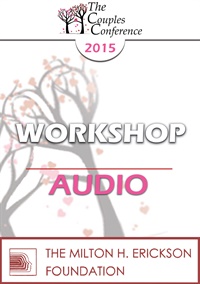
- Average Rating:
- Not yet rated
- Topic Areas:
- Couples Therapy | Workshops | Love | Communication | Intimacy | Relationships
- Categories:
- Couples Conference | Couples Conference 2015
- Faculty:
- Pat Love, EdD
- Duration:
- 1:34:46
- Format:
- Audio Only
- Original Program Date:
- Apr 25, 2015
- Short Description:
- While we love those deep, intimate conversations that bring us close together and join our spirits, what role does difference play in passion? Come explore this and other questions related to relational happiness. We will identify two empathic systems, and understand the role of dopamine in intimate relationships.
- Price:
- $15.00 - Base Price
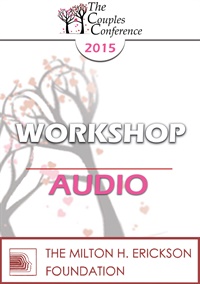
- Average Rating:
- Not yet rated
- Topic Areas:
- Couples Therapy | Workshops | Therapist Development
- Categories:
- Couples Conference | Couples Conference 2015 | Pioneers in Couples and Family Therapy
- Faculty:
- William Doherty, PhD
- Duration:
- 1:42:09
- Format:
- Audio Only
- Original Program Date:
- Apr 25, 2015
- Short Description:
- How to work with partners who are leaning in difference directions about staying together and trying therapy. Learn core techniques and see a video demonstration of how to work confidently with these challenging couples. You will learn the key pathways offered couples in Discernment Counseling.
- Price:
- $15.00 - Base Price
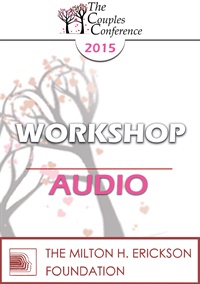
- Average Rating:
- Not yet rated
- Topic Areas:
- Couples Therapy | Workshops | Intimacy | Love | Sex and Sexuality
- Categories:
- Couples Conference | Couples Conference 2015
- Faculty:
- Esther Perel, MA, LMFT
- Duration:
- 1:27:43
- Format:
- Audio Only
- Original Program Date:
- Apr 25, 2015
- Short Description:
- Why does great sex so often fade for couples who claim to love each other as much as ever? Why doesn’t good intimacy guarantee good sex? When you love , how does it feel and when you Desire how is it different? Loss of Desire brings many people into our offices. It is the prime sexual complaint that leads relational unhappiness, infidelity and even divorce. For the most part, sexuality has been relegated to sex therapy and couple therapy has been a desexualized practice. Yet, love in our digital age puts sex at the center of couples’ lives.
- Price:
- $15.00 - Base Price
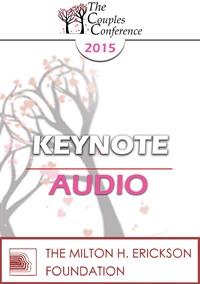
- Average Rating:
- Not yet rated
- Topic Areas:
- Couples Therapy | Keynotes | Relationships
- Categories:
- Couples Conference | Couples Conference 2015 | Pioneers in Couples and Family Therapy
- Faculty:
- Harville Hendrix, PhD | Helen LaKelly Hunt, PhD
- Duration:
- 1:00:38
- Format:
- Audio Only
- Original Program Date:
- Apr 24, 2015
- Short Description:
- This keynote traces the shift from arranged and romantic marriages to conscious partnerships, emphasizing connection, safety, and mutual healing. It introduces a new view of couples as dynamic systems that shape—and are shaped by—culture. It also references past large-scale community workshops and presents proposed relationship education policies and a therapeutic model centered on empathy, dialogue, and social transformation.
- Price:
- $15.00 - Base Price
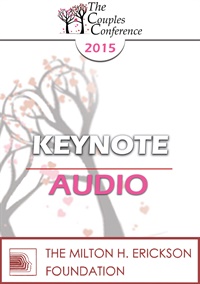
- Average Rating:
- Not yet rated
- Topic Areas:
- Couples Therapy | Sex and Sexuality | Keynotes | Intimacy | Relationships
- Categories:
- Couples Conference | Couples Conference 2015
- Faculty:
- Pat Love, EdD
- Duration:
- 53:58
- Format:
- Audio Only
- Original Program Date:
- Apr 24, 2015
- Short Description:
- Our natural sexual setpoint explains a lot about arousal, desire and intimate satisfaction. We will explore this issue with research, facts and humor, with the objectives of understanding the effects of estrogen on desire and the effects of testosterone on desire.
- Price:
- $15.00 - Base Price
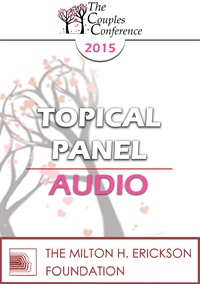
- Average Rating:
- Not yet rated
- Topic Areas:
- Couples Therapy | Topical Panels | Differentiation
- Categories:
- Couples Conference | Couples Conference 2015 | Pioneers in Couples and Family Therapy
- Faculty:
- Ellyn Bader, PhD | Judith Anderson | Peter Pearson, PhD
- Duration:
- 43:37
- Format:
- Audio Only
- Original Program Date:
- Apr 24, 2015
- Short Description:
- This panel examines differentiation in couples therapy, revealing how partners can maintain individual identity while building secure attachment. Through practical techniques and case studies, the presenters demonstrate strategies for managing emotional reactivity, understanding different perspectives, and creating deeper intimacy. The discussion offers insights into helping couples navigate complex relationship dynamics with empathy and mutual respect.
- Price:
- $15.00 - Base Price
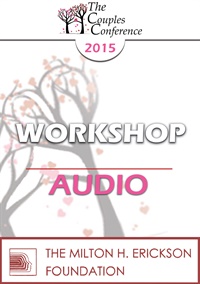
- Average Rating:
- Not yet rated
- Topic Areas:
- Couples Therapy | Workshops | Communication | Relationships | Goals of the Therapist
- Categories:
- Couples Conference | Couples Conference 2015
- Faculty:
- Harville Hendrix, PhD
- Duration:
- 1:38:54
- Format:
- Audio Only
- Original Program Date:
- Apr 24, 2015
- Short Description:
- Couples therapy tends to operate without a clear map of successful outcome, except the reported satisfaction/dissatisfaction of the couple. In this workshop, we will propose an optimal outcome of couple’s therapy, the process of reaching it and demonstrate the procedures that achieve it.
- Price:
- $15.00 - Base Price
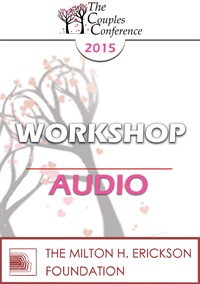
- Average Rating:
- Not yet rated
- Topic Areas:
- Couples Therapy | Workshops | Psychobiological Approach to Couples Therapy (PACT) | Therapist Development
- Categories:
- Couples Conference | Couples Conference 2015 | Pioneers in Couples and Family Therapy
- Faculty:
- Stan Tatkin, PsyD, MFT
- Duration:
- 1:54:28
- Format:
- Audio Only
- Original Program Date:
- Apr 24, 2015
- Short Description:
- This workshop explores couple therapy with highly disorganized partners, where therapeutic structure and stance are essential. Using attachment, regulation, and neurobiological models, it addresses trauma-related dysregulation. Clinical examples illustrate how facial cues, pacing, and therapist attunement support emotional regulation and relational repair in the face of volatility.
- Price:
- $15.00 - Base Price
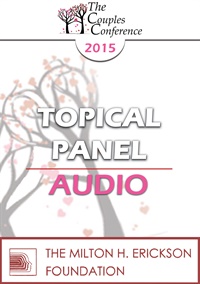
- Average Rating:
- Not yet rated
- Topic Areas:
- Topical Panels | Attachment | Couples Therapy
- Categories:
- Couples Conference | Couples Conference 2015 | Pioneers in Couples and Family Therapy
- Faculty:
- Harville Hendrix, PhD | Stan Tatkin, PsyD, MFT | Marion Solomon, PhD
- Duration:
- 1:01:42
- Format:
- Audio Only
- Original Program Date:
- Apr 24, 2015
- Short Description:
- This panel explores how therapists can strengthen connection by addressing the subtle fears that undercut safety and intimacy. Panelists reflect on cultural shifts—like the women’s movement and the rise of conscious partnerships—and call for a more proactive clinical stance: integrating early relationship education, premarital work, and public advocacy to help shape a relationally healthier culture.
- Price:
- $15.00 - Base Price
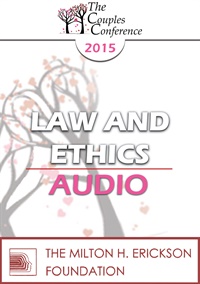
- Average Rating:
- Not yet rated
- Topic Areas:
- Law & Ethics | Therapist Development
- Categories:
- Couples Conference | Couples Conference 2015
- Faculty:
- A. Steven Frankel, PhD, JD, ABPP
- Duration:
- 5:16:28
- Format:
- Audio Only
- Original Program Date:
- Apr 23, 2015
- Short Description:
- This 6-hour program addresses the profound changes that are taking place in the health system in the U.S., the implications for mental health care, and, in turn, the implications for mental health care providers. We begin with a discussion of the role of the insurance industry in health care and how that role has expanded over the past 50-60 years, affecting the licensure and practices of mental health professionals.
- Price:
- $30.00 - Base Price
Tags: Ethics Law Therapist Development

